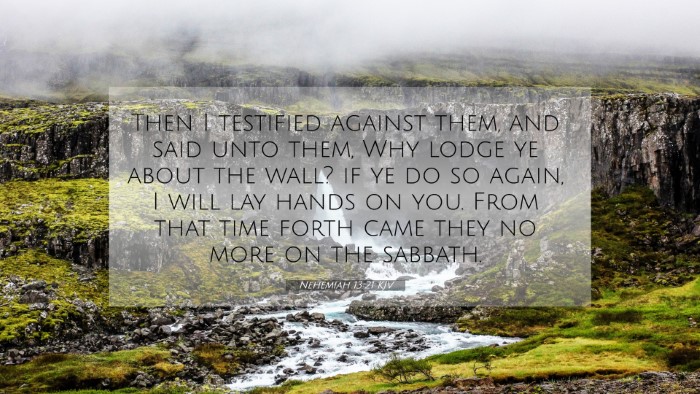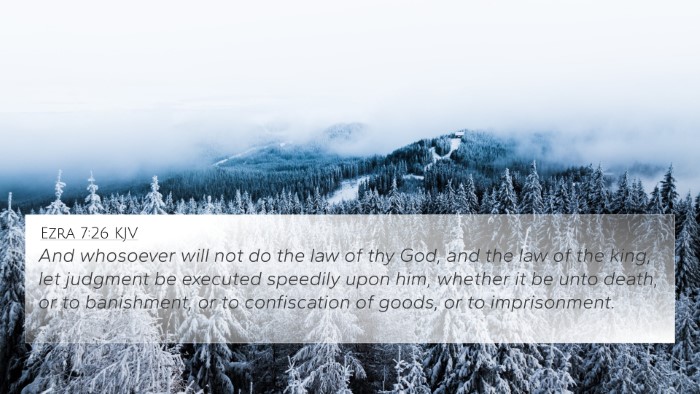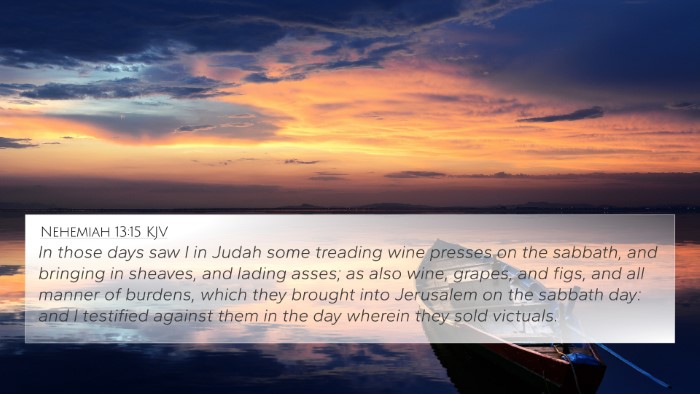Old Testament
Genesis Exodus Leviticus Numbers Deuteronomy Joshua Judges Ruth 1 Samuel 2 Samuel 1 Kings 2 Kings 1 Chronicles 2 Chronicles Ezra Nehemiah Esther Job Psalms Proverbs Ecclesiastes Song of Solomon Isaiah Jeremiah Lamentations Ezekiel Daniel Hosea Joel Amos Obadiah Jonah Micah Nahum Habakkuk Zephaniah Haggai Zechariah MalachiVerse
Nehemiah 13:1 Nehemiah 13:2 Nehemiah 13:3 Nehemiah 13:4 Nehemiah 13:5 Nehemiah 13:6 Nehemiah 13:7 Nehemiah 13:8 Nehemiah 13:9 Nehemiah 13:10 Nehemiah 13:11 Nehemiah 13:12 Nehemiah 13:13 Nehemiah 13:14 Nehemiah 13:15 Nehemiah 13:16 Nehemiah 13:17 Nehemiah 13:18 Nehemiah 13:19 Nehemiah 13:20 Nehemiah 13:21 Nehemiah 13:22 Nehemiah 13:23 Nehemiah 13:24 Nehemiah 13:25 Nehemiah 13:26 Nehemiah 13:27 Nehemiah 13:28 Nehemiah 13:29 Nehemiah 13:30 Nehemiah 13:31





